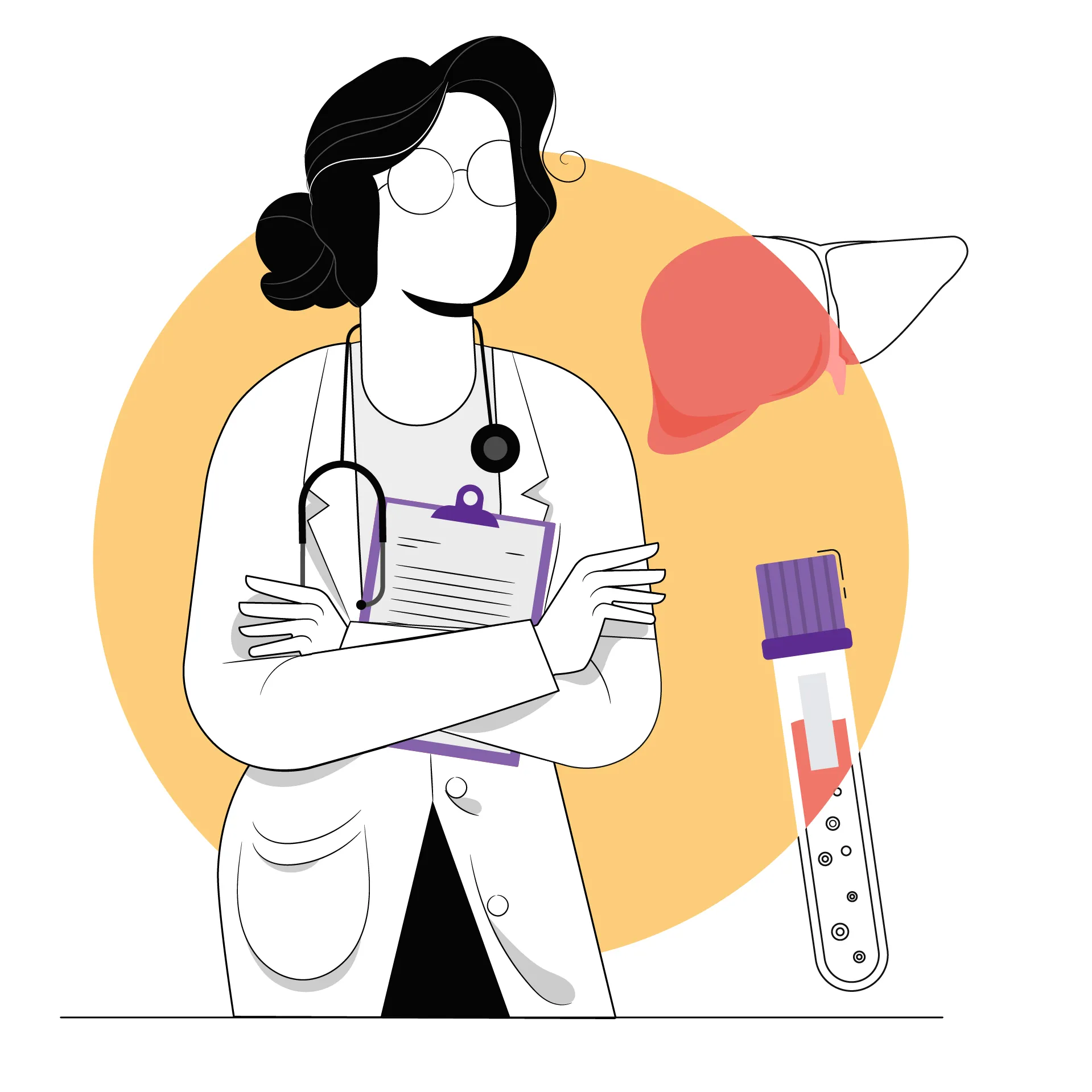Health Tests | 5 min read
Triglycerides Test: 5 Important Things to Know About It
Medically reviewed by
Table of Content
Key Takeaways
- Triglycerides test is part of a lipid profile test to assess various fats
- High levels in your triglycerides test means high risk of heart condition
- Triglycerides lab test procedure is the same as the cholesterol level test
Triglycerides test is usually done with a lipid profile test. This test checks the levels of different fats present in your blood. This includes different types of cholesterol levels and triglycerides. By looking at the results of your triglycerides test, a doctor can determine whether or not you are at risk of developing a heart condition. With our current lifestyle that is fast-paced and includes unhealthy habits like skipping meals, eating unhealthy foods, or not eating on time, it is even more important to keep your heart health in check.
Other than heart conditions, high triglyceride levels can also affect your health in other ways. It can indicate hypothyroidism, prediabetes or type 2 diabetes, metabolic syndrome, or a genetic condition [1]. In order to have a healthy heart, you should go for regular health checkups, which include a triglycerides test. Read on to know more about this lab test and understand what the result of a triglycerides test means.
Why Should You Get a Triglycerides Test?
Our hectic lifestyle and unhealthy habits make our bodies more vulnerable to various health conditions, including heart disease. A study suggests that your lifestyle habits may be a greater risk to your heart than your genetics [2]. As a result, it becomes necessary to get health checkups at regular intervals. A healthy adult can go for a lipid profile every five years on average. Your doctor may also advise you to get a triglycerides test to assess your cardiac profile if you have certain risk factors. These include a family history of heart ailments, obesity, diabetes, sedentary lifestyle, unhealthy eating, smoking, and high BP.
Additional Read: Cholesterol Test
How are the Triglycerides Lab Test Done?
Since a triglycerides test is often a part of your lipid profile test, the procedure remains the same. The lipid profile lab test is generally done in the morning and may require a fasting period of around 8-12 hours. A doctor or a nurse will first use an antiseptic to clean the area from where they will draw blood. After that, they will collect a blood sample and send it for a lab test.
They may also tie a band above your elbow to give better access to your veins. The whole process of lipid profiles test may take a few minutes, depending on the diagnostic center. Once the sample is sent to the lab, the technicians will conduct a cholesterol and triglycerides test. You will generally receive a digital version of the result in a day or two.
What do the Result of a Triglycerides Test Show?
The results of your triglycerides test can indicate two things – either your heart is healthy, or you need to change your lifestyle habits to protect your heart health. High levels in the result of a triglycerides test mean you need to modify your habits. This can help you decrease the chances of developing a heart condition and also stop the situation from worsening.
General categorization of triglycerides test results are as follows:
- Normal levels – ≤ 150 mg/dL
- Borderline levels – Between 150-199 mg/dL
- High levels – Between 200-499 mg/dL
- Very high levels - ≥ 500 mg/dL
Keep in mind that these ranges may vary depending on factors like age, family history, and more.

What Causes High Triglyceride Levels
There are many reasons why the results of your triglycerides test may indicate high levels.
Medication
Medicines for certain conditions can cause a high level. These medicines include steroids, HIV medication, retinoids, beta blockers, immunosuppressants, diuretics, progestin, and estrogen.
Lifestyle habits
As mentioned, unhealthy lifestyle habits can negatively impact your heart and overall health. Certain habits that can result in high levels in a triglyceride test include:
- High cholesterol history in the family
- Overconsumption of alcohol
- Smoking
- Being obese or overweight
- Health conditions
Some health conditions such as thyroid, diabetes, kidney disease, menopause, or liver disease can also result in high triglycerides levels.
How to Lower Triglycerides Levels?
Given that lifestyle habits can cause high levels of triglycerides, changing these habits can help in lowering these levels. Studies reveal that even with high genetic risk factors, following a healthy lifestyle can reduce the risk of a heart condition by 50% [3]. These are:
- Leading an active lifestyle
- Making dietary changes
- Maintaining healthy weight
- Limiting alcohol consumption
Other than leading a healthy lifestyle, your doctor may also recommend certain medicines that can help lower your triglycerides levels. This medication includes fibrates, niacin, statins, fish oil, and others. Your doctor may design a treatment plan based on the results of your triglycerides test and other health conditions.
Additional Read: High Cholesterol SymptomsNow that you are aware of what a triglycerides test is and what the results mean be proactive about protecting your health. If you notice any signs of a health condition, talk to a doctor immediately. Book lab tests online on Bajaj Finserv Health and consult with experienced doctors to know more about your health.
A cardiac profile test and other health tests available on the platform give you a chance to monitor such markers with ease. You can also get discounts on test packages on the platform or app. These lab tests also include sample pick-up from home for maximum convenience. What’s more, you can sign up for any medical policy under the Complete Health Solution plans to address heart disease and other healthcare expenditures with ease. These plans offer reimbursement on lab tests and doctor consultations along with a wide range of network discounts and a substantial insurance cover. Check them out now and make your health a priority.
References
- https://www.mayoclinic.org/diseases-conditions/high-blood-cholesterol/in-depth/triglycerides/art-20048186
- https://www.news-medical.net/news/20190903/Unhealthy-lifestyle-raises-heart-disease-risk-more-than-genetics.aspx
- https://pubmed.ncbi.nlm.nih.gov/27959714/
Disclaimer
Please note that this article is solely meant for informational purposes and Bajaj Finserv Health Limited (“BFHL”) does not shoulder any responsibility of the views/advice/information expressed/given by the writer/reviewer/originator. This article should not be considered as a substitute for any medical advice, diagnosis or treatment. Always consult with your trusted physician/qualified healthcare professional to evaluate your medical condition. The above article has been reviewed by a qualified doctor and BFHL is not responsible for any damages for any information or services provided by any third party.
